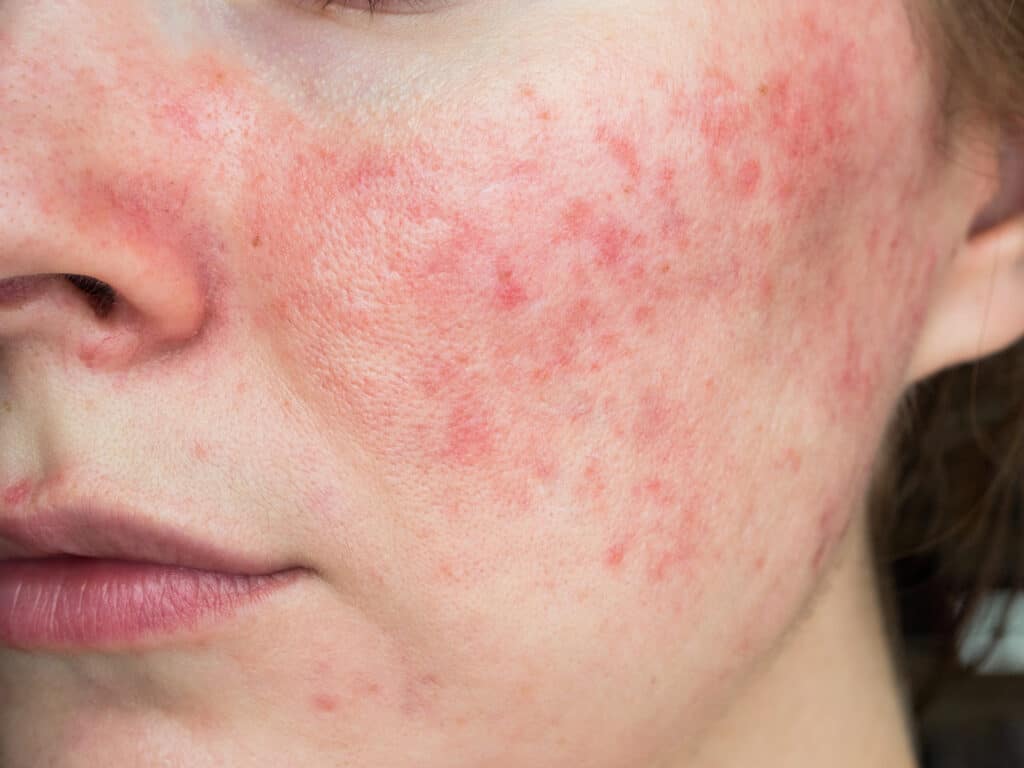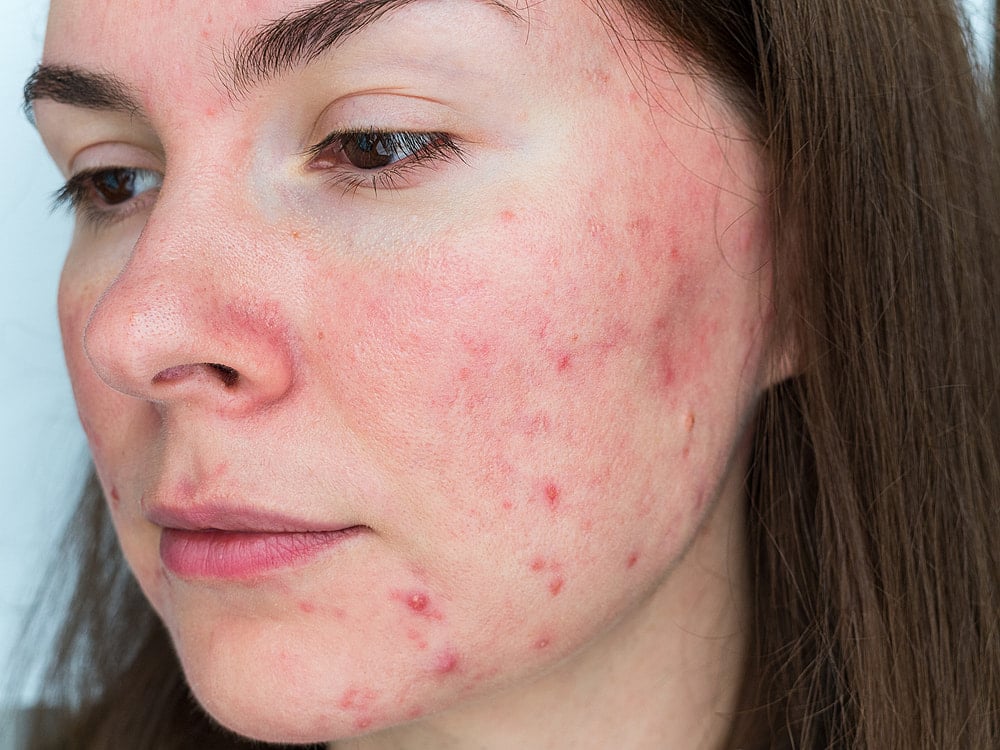


Rosacea is not something that only those living in the 21st Century struggle with. This is a condition that has been around for centuries! In a medical textbook from 1812 called Delineations of Cutaneous Diseases, Thomas Bateman said, “The perfect cure of [acne] rosacea is, in fact, never accomplished.” You would have thought that 210 years later from the year that this quote was published, we would have identified a way to prevent rosacea from completely happening, or identified solutions to completely cure it, but that doesn’t seem to be the case.
Since there are so many overlaps of clinical features across the different subtypes of rosacea, even though there are four clinically identified main rosacea subtypes, there is no single best way to prevent and treat rosacea. The main way to prevent rosacea is to focus on lifestyle changes which can help to achieve those positive goals of symptom management and remission, which is what we will go through in this article today!
There are several lifestyle changes that can drastically prevent rosacea from flaring up.
Keeping an allergen or rosacea diary can help to identify triggers to prevent rosacea flare ups. Since identifying triggers can be very much an individual process – no two rosacea sufferers are exactly the same – The National Rosacea Society has a booklet that can be printed out and used daily for two weeks, which helps rosacea patients identify certain triggers including food, stress, and the weather. Once triggers are identified, avoiding them can become much easier. Consulting an immunologist to test for specific skin allergies and sensitivities can also be an option.
There are some dietary changes that can help to prevent rosacea. The addition of omega-3 fatty acids in rosacea patients twice daily for 6 months can help to relieve ocular rosacea symptoms. Some other dietary supplements have had mixed results, so they can depend on the individual’s response, such as pre- and probiotics or zinc. Since there is an increased risk of gastrointestinal problems in a person with rosacea, the role of the gut bacteria is still being researched when it comes to chronic inflammatory conditions like rosacea. The use of pre- and probiotics for eight weeks has a significant effect on atopic dermatitis severity, and may help in rosacea as well. Zinc in preventing rosacea has contradictory results – one trial noted significant improvement with 100mg of zinc sulfate 3 times a day, another found no difference in improvement after 90 days of 220mg of zinc sulfate twice a day.
Since UV radiation can be even more damaging for skin with rosacea due to its skin-thinning mechanisms, adequate sun protection is crucial in preventing rosacea.
Since rosacea sufferers may have an underlying dysregulation of the parasympathetic nervous system which helps to slow down bodily systems, stress can activate the sympathetic system more – the opposite of that parasympathetic system, which is the ‘fight-or-flight’ mechanism. This causes an increase in blood flow and flushing. So while it is impossible to never have stress in our life, adopting self-care habits such as getting enough sleep and getting mental and emotional support can help.
Alcohol is commonly found in skincare and makeup products for its function in helping products penetrate the skin, preservation of the product, and making it feel lightweight when applied. However, for rosacea sufferers, it can be a trigger for a flare because of its drying properties. Some other ingredients to avoid for preventing rosacea are:
While exercise can improve your overall health and wellness which is important for keeping fit all the way up to your 60s and 70s, it can be a trigger for rosacea because it increases body temperature and blood vessel dilation. To prevent rosacea while keeping all the benefits of exercise, you may want to find ways to keep your skin from overheating: Staying hydrated, working out indoors or in the shade and away from direct sunlight, avoiding saunas after exercise and choosing a cold shower after instead.
See your primary care doctor or dermatologist for check-ups as often as recommended. Rosacea sufferers are often at higher risk of other conditions such as migraines, high blood pressure, and high cholesterol levels, although the reasons why are still being studied. Having regular health screenings can identify the progression of your rosacea, and can also prevent further worsening of not just your skin but your general health.
If you smoke and have rosacea, stopping might be a good idea. Quitting smoking can help in rosacea prevention since cigarette smoke can cause the already sensitive skin on the face to sting and burn more. Smoking can also increase inflammation levels in the body and reduce immunity, which further triggers rosacea.
Look out for alcohol in not just your skincare products! Consuming alcohol can dilate the small blood vessels in your face, causing that classic rosacea redness and burning. This is because alcohol has a high level of histamines and Asians actually tend to be more sensitive to these processes as well. Red wine is particularly high in histamines, causing something called a ‘red wine headache’.
Preventing rosacea can be a journey and a half! Knowing that you have a team behind your back to support you in your rosacea treatment journey can be really reassuring, especially with our trained clinicians. Here at SL Aesthetic, we are equipped for assessment and rosacea treatment in Singapore. Book your appointment today.
Like what you read? Share them!